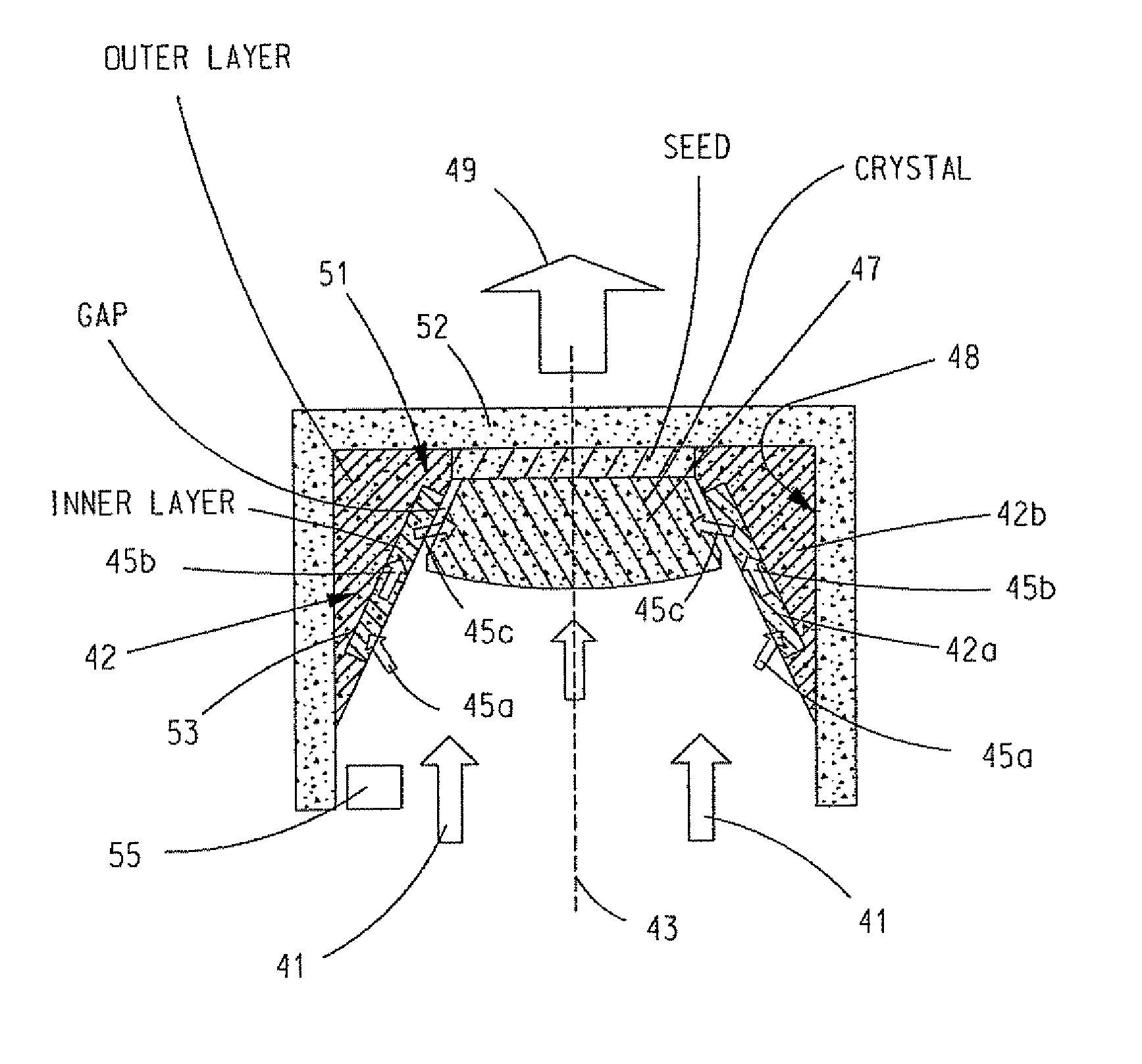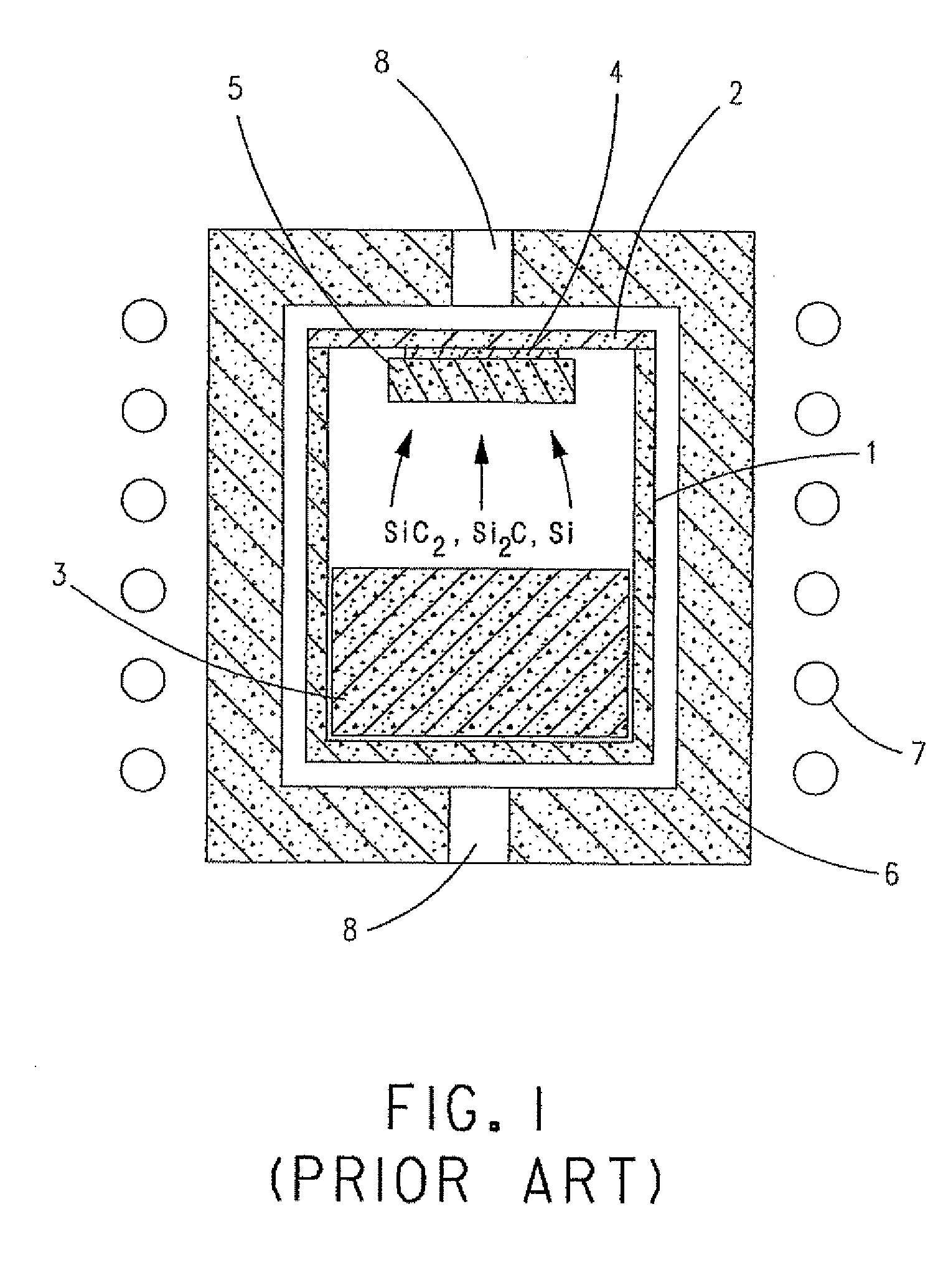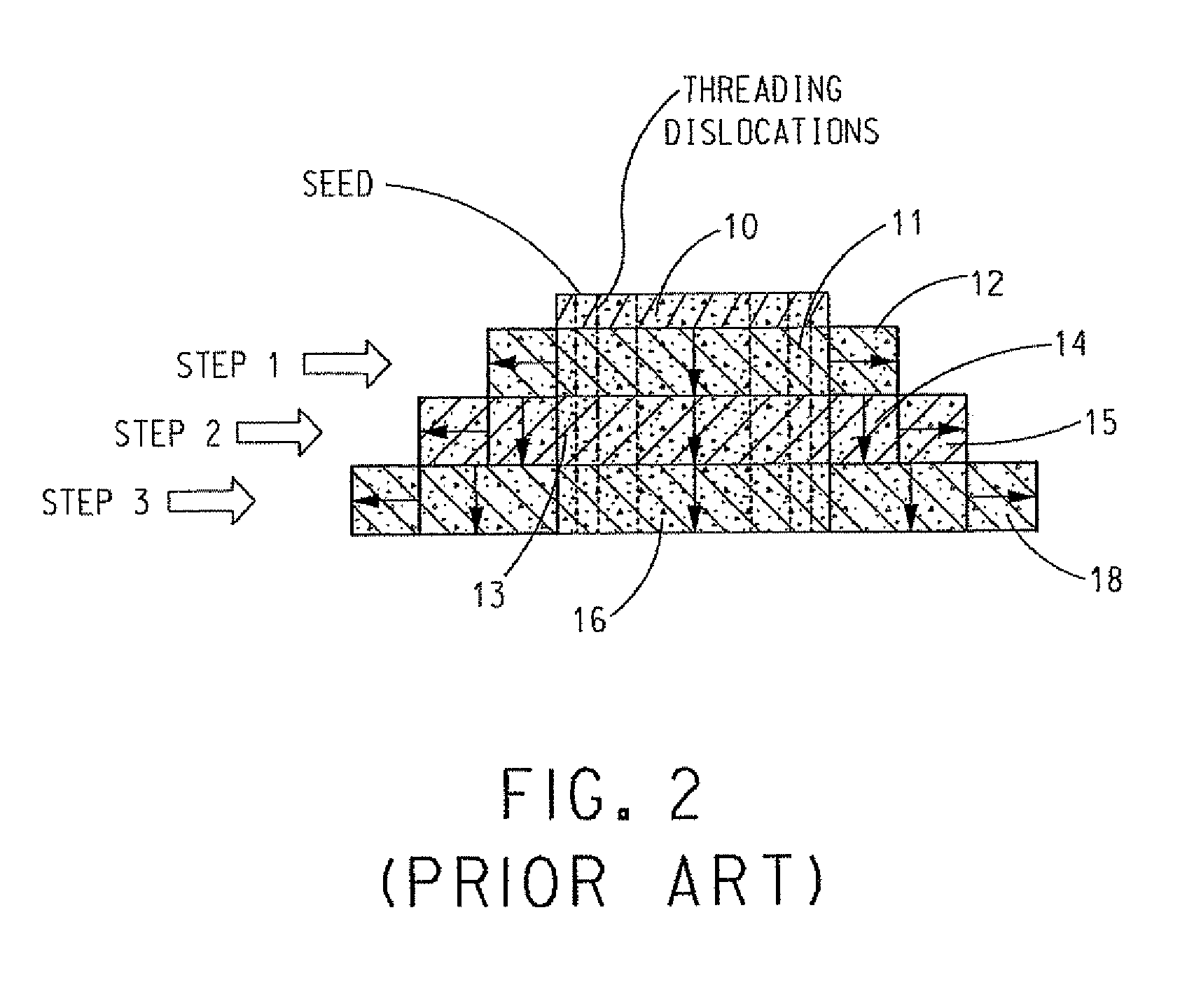Guided diameter SiC sublimation growth with multi-layer growth guide
a growth guide and guide technology, applied in the direction of polycrystalline material growth, separation process, under protective fluid, etc., can solve the problems of affecting the performance of devices made from single crystals, dislocation and low-angle grain boundaries, and most unwanted defects in sic substrates, etc., to achieve high thermal conductivity and low thermal conductivity
- Summary
- Abstract
- Description
- Claims
- Application Information
AI Technical Summary
Benefits of technology
Problems solved by technology
Method used
Image
Examples
Embodiment Construction
[0052]The SiC sublimation crystal growth disclosed herein utilizes guided expansion of the crystal diameter during the growth thereof to eliminate or avoid erosion of the growth guide, deposition of polycrystalline SiC on the guide and attachment of the crystal to the guide. It can be used for the production of large-diameter, high-quality SiC single crystals.
[0053]To understand the effect of the growth guide design on the temperature of its inner surface and its correlation with the crystal temperature, reference will now be made to FIGS. 5A, 5B and 6. FIGS. 5A, 5B and 6 each show schematically the upper part of a SiC crystal growth crucible, like crucible 1 in FIG. 1, with a thermally nonconductive conical growth guide, a thermally conductive conical growth guide and a multi-layer growth guide in accordance with an embodiment of the present invention, respectively. Each growth guide is disposed at the crucible top and surrounds the SiC seed crystal and the growing SiC crystal boul...
PUM
| Property | Measurement | Unit |
|---|---|---|
| weight percent | aaaaa | aaaaa |
| angle | aaaaa | aaaaa |
| angle | aaaaa | aaaaa |
Abstract
Description
Claims
Application Information
 Login to View More
Login to View More - R&D
- Intellectual Property
- Life Sciences
- Materials
- Tech Scout
- Unparalleled Data Quality
- Higher Quality Content
- 60% Fewer Hallucinations
Browse by: Latest US Patents, China's latest patents, Technical Efficacy Thesaurus, Application Domain, Technology Topic, Popular Technical Reports.
© 2025 PatSnap. All rights reserved.Legal|Privacy policy|Modern Slavery Act Transparency Statement|Sitemap|About US| Contact US: help@patsnap.com



